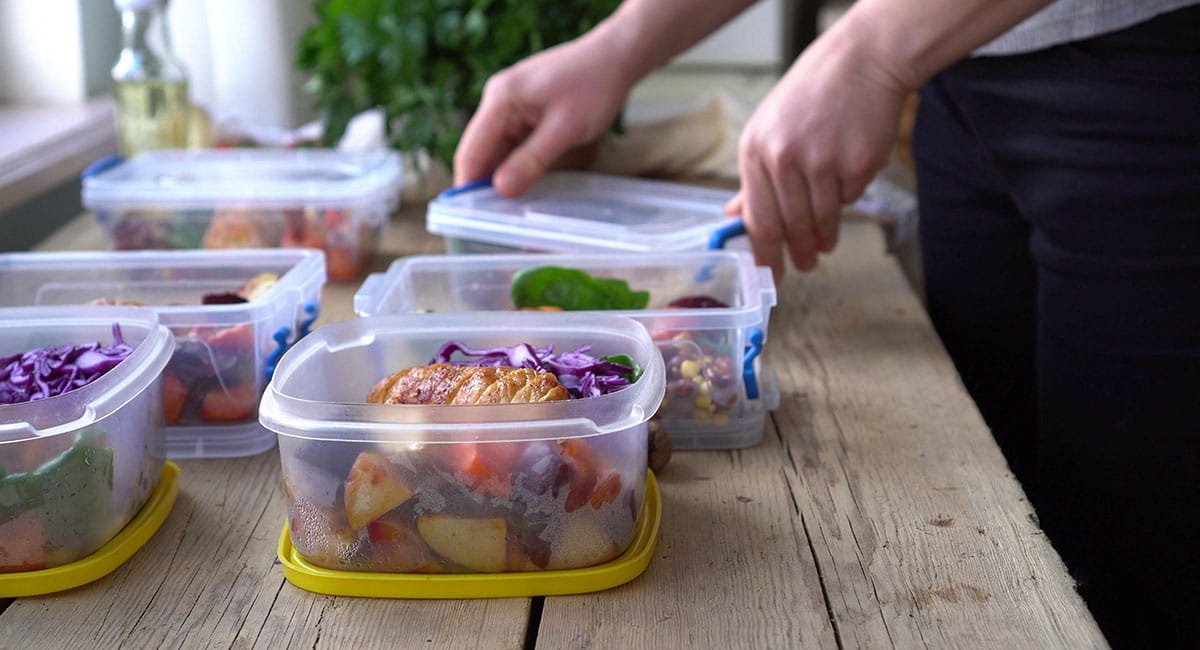“A health professional can give you some strategies, send you evidence-based resources, talk to you about meal planning or offer ideas to help. Plus, you know it's coming from a reliable source, and the information you’re getting is correct.”—Kate Miocevich, Health Coach, Remedy Healthcare
Key points
- Don’t try and do everything all at once. It's easier to increase your intake of vegetables, for example, if you start with a small change.
- Eating a healthy diet is a lot easier if you take the time to plan out your meals and embrace shortcuts, such as choosing nutritious pre-prepared options.
- Expert support from a health professional, like a dietician or health coach, can be particularly helpful if you’re struggling with preparing healthy food, or have family members with special dietary requirements.

When it comes healthy eating, most of us know what we need to do. We need to prioritise fruit, veg and wholegrains, drink lots of water, ditch the sugar and junk food, and ease up on the wines and beers.
It sounds easy, but actually doing it? That’s the challenge, especially if we have busy lives, live by ourselves, or lack the knowledge or skill to prepare nutritious meals.
The lure of restaurants and takeaway, a lack of time, and even catering for the different dietary requirements of family members are other reasons that can affect our ability to eat well, says Kate Miocevich, an Accredited Practising Dietitian and health coach with HealthierMe™, a program run by Australian Unity's Remedy Healthcare.
But a good diet is critical for our health, wellbeing and ability to live our best lives. Here are some expert-backed strategies to help you eat well without the hassle.
Start with small changes
Eating a balanced diet can be overwhelming, especially when you look at the Australian government’s nutritional guidelines, says HealthierMe health coach and former registered nurse Amy Mullins.
“A lot of people look at the guidelines and think, ‘five servings of vegetables a day? Well, I'm never going to get in that much.’ It can feel overwhelming for people, especially if they’re not used to eating any fruit or vegetables at all.”
Amy recommends starting with small changes and slowly increasing your intake of certain foods. Try incorporating one piece of fruit per day, then two. Next, look at your dairy consumption and try to get in two-and-a-half servings of milk, yoghurt or cheese. “That’s particularly important for women aged between 19 and 50,” explains Amy, as calcium is essential for bone health.
“We're looking at incorporating lean meat, vegetables, fruit, wholegrains, dairy—a range of healthy foods—but still enjoying a treat," says Amy. "It’s really what you do 80 percent of the time in your diet that's going to have an effect, rather than what you do in the other 20 percent. It's a balance.”
Embrace meal prep
Okay, we’ll admit there is a little work with this one, but meal planning and prepping can make a huge difference to both your health and your budget for just a small time outlay.
Half an hour is all it takes. “Put aside time on a Sunday afternoon to plan your weekly meals so that when you get home from work, you already have all the ingredients to cook a meal,” says Kate.
Don’t think of food prep just as making a complete meal, either. Try chopping up vegetables, washing and drying salad leaves so they’re ready to go, marinating meat, roasting veggies for salads or sides, or making a quick dip like hummus or tzatziki to keep on hand when those snack cravings hit.

Prepare multiple portions
Cooking for one? “Your freezer is your best friend,” says Kate, especially if you live alone. “Cook a recipe for four, then freeze the leftovers.” Your future self—tired and brain-fried after a long day at work—will thank you. Veggie-laden Bolognese or chilli con carne, soups and casseroles all freeze well and can be divided into smaller portions for reheating in the microwave.
When it comes to leading a healthy lifestyle, Kate takes her own advice: “I cook for one, so I plan out my meals, and eat the same thing for breakfast and lunch every single day. I try to make being healthy simple for myself.”
Convenience isn’t always bad
Between getting the kids to sport practice or heading straight to the gym after work, we’re all busier than ever. Kate’s tip if you're low on time? “Don’t shun the healthy convenience foods out there.”
Think pre-marinated chicken, pre-packaged salad, or fruit and vegetables that have already been peeled and cut. You’ll find these in the fresh or freezer sections of your supermarket.
“Foods that have been semi- or pre-prepared for you can be nutritious. So it’s a case of having some convenient meals in the fridge waiting for you to heat and eat.”

Get expert help
If you are struggling with preparing a healthy meal or are living with people with allergies and intolerances, spending time with a health professional can help. You might also find it’s a service provided by your private health insurer. Australian Unity, for example, subsidises an annual consultation with a registered dietician to eligible policy holders.
The benefit, says Kate, is that a health professional can humanise often complicated and conflicting information about what you should and shouldn’t eat. “They can give you some strategies, send you evidence-based resources, talk to you about meal planning or offer ideas to help. Plus, you know it's coming from a reliable source, and the information you’re getting is correct.”
Planning out a few meals or lunches each week, incorporating one new nutritious food at a time, or taking a convenient-but-healthy shortcut are all simple tips that can set you up for Real Wellbeing.
“If you're building a house, you want a strong foundation as you add more stories on to it, because if you don't have that strong foundation, the house will collapse. Healthy eating is a bit like that. You want to start building that foundation of healthy eating as soon as possible,” concludes Amy.
Disclaimer:
Information provided in this article is not medical advice and you should consult with your healthcare practitioner. Australian Unity accepts no responsibility for the accuracy of any of the opinions, advice, representations or information contained in this publication. Readers should rely on their own advice and enquiries in making decisions affecting their own health, wellbeing or interest.


